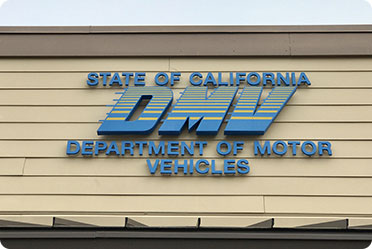
Ignition Interlock Devices (IID) are being used in many different states as a method to curtail drunk driving. Across the country, there is a lot of variation on how the devices are being used. Pennsylvania has taken some unique steps in how it enforces the use of IIDs in its state.
An ignition interlock device is a breathalyzer that is incorporated into the ignition function of a car. The device overrides a car’s ability to start without a passing score on its attached breathalyzer. The IID is small, non damaging to the vehicle, and quick to install. Models and state requirements may vary, but the device measures the BAC of the breath sample you provide to it prior to starting your car, and at sporadic intervals while driving.
Failing IID results will not stop a moving car, but it will prevent a car from starting, and the results are sent to authorities. Many times, if a test is failed while the car is moving, an alarm will go off, and the driver will be notified to pull over. IID installation and maintenance is paid for by the offender.
Pennsylvania has instituted an ignition interlock requirement for repeat driving under the influence (DUI) offenders. Currently, anyone who has been convicted of a DUI in Pennsylvania within the past 10 years will require an IID on their second offense.
In addition to requiring the installation of an ignition interlock device, Pennsylvania DUI offenders also are issued a new restricted license. This new license will be marked with restrictions that say the holder is only allowed to drive vehicles with IIDs installed in them. The restriction is applicable for one year. Assuming no other infractions have occurred, the offender is eligible for a regular license after that year.
Having a Pennsylvania IID restricted license also has a huge impact on vehicle registration. If issued one, every vehicle owned or registered by its holder must have an ignition interlock device installed. If they do not own or register any vehicles they must simply notify the Pennsylvania Department of Transportation (PennDOT). If they cannot afford to install the device on all of their vehicles, they must notify PennDOT and pick which vehicles they will be driving. Even though the cars may still be registered to them, they must not drive them if the IID was not installed.
How are work vehicles treated? If a job requires someone with a Pennsylvania IID restricted license to drive, the employer can allow him or her to drive the company owned vehicle without an IID. This is only true if the employer signs a notarized letter acknowledging that they are aware of the restriction, if the vehicle is not used for personal reasons, and if it is not partially owned by the restricted license holder. Vehicles used for transporting more than 15 passengers, or vehicles relating to a school are not eligible to be driven by someone with an IID restricted license – even with employer permission.
Because Pennsylvania uses a restricted license scenario with its ignition interlock requirement, many of the related infractions are tied to that license. For example, if you are issued the restricted license and you are caught driving a vehicle without an IID, you could spend up to 90 days in jail and pay a $1000 fine. Driving a vehicle without an IID and being found guilty of having a BAC of .025% or greater, (or certain drugs in the blood during a blood test), raises the fine to at least $1000 and 90 days of required jail time.
If either of these offenses occur, the restricted license will be revoked, and all driving privileges suspended. After the suspension period, the driver can be issued a new IID restricted license that will once again be required for one year. Basically, the offenses will not only result in possible fines and jail time, it will also extend the overall restriction period.
There is actually only one offense that is not related to the restricted license. Tampering with the ignition interlock device by attempting to use a different person’s breath carries up to 90 days in jail and a $1000 fine.
Leckerman Law focuses on safeguarding the
rights of individuals charged with DUI, DWI, DAI, and
other alcohol-related criminal offenses - Call Us Now For
NJ DWI (856) 429-2323 | For PA DUI (215) 496-9292